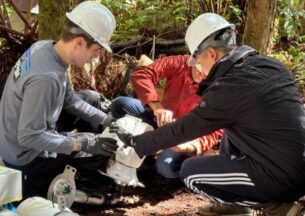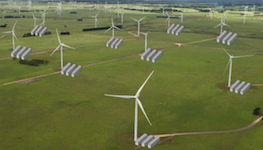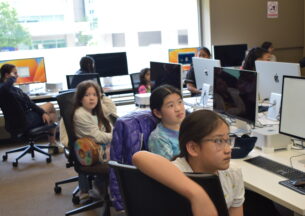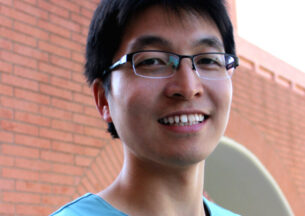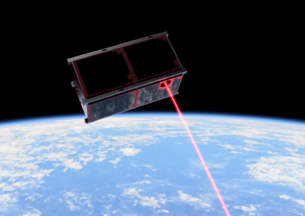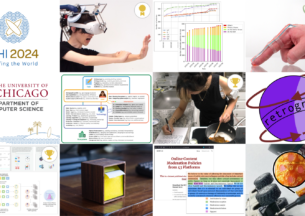Professor Andrew A. Chien on the Environmental Impacts of Technology
If you could only name two fields that are rapidly growing and defining the current society we are living in, those two things would be this: computing and sustainability. As much as technology is exponentially developing, such as the rise of AI in the past decade, climate change and resource exploitation also have become increasingly dire issues that we need to address, with global temperatures soaring above the pre-industrial era norm. In the University of Chicago’s Department of Computer Science, William Eckhardt Distinguished Service Professor Andrew A. Chien combines both of those rapidly growing fields to study the interdisciplinary science of sustainable computing, in order to address the rising energy demands of our increasingly technological world.
From Heedless to Heedful Technologist
Chien spent many years as a “heedless technologist” — including a graduate career at Massachusetts Institute of Technology, professorships at University of Illinois Urbana-Champaign and University of California San Diego, and five years at Intel as the Vice President of Research. This coincides with five decades of unprecedented and exponential improvement in the power of computing and technology. At Intel, he began to realize that the advancement in technology could not continue infinitely.
After Intel, Chien came to the University of Chicago and pondered, “What do you do with computing when computers aren’t getting faster that quickly anymore? What I figured out is if technological advancement is going to flatten out, then maybe I could keep these old computers around for longer to decrease the amount of environmental impact and E-waste.”
 At the University of Chicago, Chien explores deep research questions underlying sustainable, scalable large-scale systems, including cloud and high performance computing. His research group, aptly named the Large-scale Sustainable Systems Group (LSSG), studies the intersection between advancements in computing and their environmental costs. The lab aims to create zero-carbon cloud computing: utilizing renewable energy and resource management techniques to optimize the energy usage of power grids and datacenters.
At the University of Chicago, Chien explores deep research questions underlying sustainable, scalable large-scale systems, including cloud and high performance computing. His research group, aptly named the Large-scale Sustainable Systems Group (LSSG), studies the intersection between advancements in computing and their environmental costs. The lab aims to create zero-carbon cloud computing: utilizing renewable energy and resource management techniques to optimize the energy usage of power grids and datacenters.
Green Datacenters
In a recent paper titled, “Adapting Datacenter Capacity for Greener Datacenters and Grid”, which won the best paper runner-up award in the Association for Computing Machinery (ACM) International Conference on Future Energy Systems, 4th year PhD graduate student Liuzixuan (Peter) Lin and Chien noticed that despite the ability for a datacenter to adapt its capacity to the availability of renewable energy, if datacenters act in isolation, ironically, more emissions can be generated.
“A lot of computer scientists are trained in optimization and control,” Chien said. “There’s this idea that if I just watched the grid, when there’s more renewable energy, I’ll increase my use. And when there’s less renewable energy, I’ll just decrease it, right? However, when the grid goes renewable, they all jump on it and increase their use. That’s called overshifting. Because they overshift, their demand oversubscribes the supply, and it turns out that the power grid has to turn on natural gas generators that causes more carbon to be emitted.”

To tackle this issue, Lin and Chien designed a scheme called “planshare” — preserving the same datacenter flexibility, data centers submit a binding plan 24 hours in advance, allowing the power grid time to prepare for datacenter energy demands. By giving up a little bit of autonomy, this subtle change eliminates the emissions increase from overshifting.
Educating the Next Generation of Sustainable Technologists
Chien observed that there are educational gaps that prevents those issues from being addressed to their fullest extent. For example, people that design datacenters often do not know anything about power grids or about the economics behind competing for a shared resource. Computer scientists fail to account for the complicated dynamics of Jenvin’s paradox: the idea that increasing the efficiency of a product would lead to increased proliferation of use, and therefore, a greater environmental impact instead of a reduced one.
 For all of these experts, the paradigm in which they were operating did not allow them to see the larger picture, so Chien sought to close the perspective gap by starting a new “Big Problems” course, Sustainability and Computing (CMSC 29520/39520), that is cross-listed with the environmental science and Committee on Environment, Geography, and Urbanization (CEGU) departments to encourage education of cross domain knowledge and interdisciplinary research.
For all of these experts, the paradigm in which they were operating did not allow them to see the larger picture, so Chien sought to close the perspective gap by starting a new “Big Problems” course, Sustainability and Computing (CMSC 29520/39520), that is cross-listed with the environmental science and Committee on Environment, Geography, and Urbanization (CEGU) departments to encourage education of cross domain knowledge and interdisciplinary research.
UChicago has a tradition of innovative education and supported Chien in creating and teaching an innovative, unconventional course like Sustainability and Computing. What he likes most about the interdisciplinary nature of the course was the diverse backgrounds of students and what they could bring to the classroom. To further enrich the course, Chien also brought experts: in AI technology, Ralf Hebrich from the Hasso-Plattner Institute, in life cycle analysis, Arman Shehabi from the Lawrence Berkeley Laboratory, and in power grid and renewables, Line Roald from University of Wisconsin-Madison — to share their unique perspectives on these issues. The course includes in-class laboratory exercises, discussions, and projects centered around debunking greenwashing and corporate marketing, in order to understand and address the real environmental and social impacts of technology being developed today.
Thoughts on the Future
When asked about how optimistic he is for making computing sustainable, Chien said that he was hugely optimistic. Despite the fact that all computing companies are not yet sustainable overall, he believes that greenwashing, and the fact that companies feel pressured to put up a facade of sustainable practice, is progress already.
“It indicates how much pressure they feel to change and do better,” Chien states. “I think sustainability and computing is as big a problem as world poverty or reliable water supply. It’s as big a problem as climate change, and we will see a huge change in the next five to ten years for dramatically more sustainable practice.”
Meanwhile, Chien himself is hard at work to address the issues he sees at hand. A huge amount of water is required to maintain cool temperatures in data centers, and Chien is worried about the environmental impact of such heavy water use, especially in dryer places where water is a precious commodity. He is currently looking into alternative cooling mechanisms that would reduce water usage, while still maintaining the efficiency of the datacenter. He hopes that one day, we will be able to achieve water-free cloud service.
To learn more about Chien and the rest of LSSG’s research, you can visit their lab page here.




